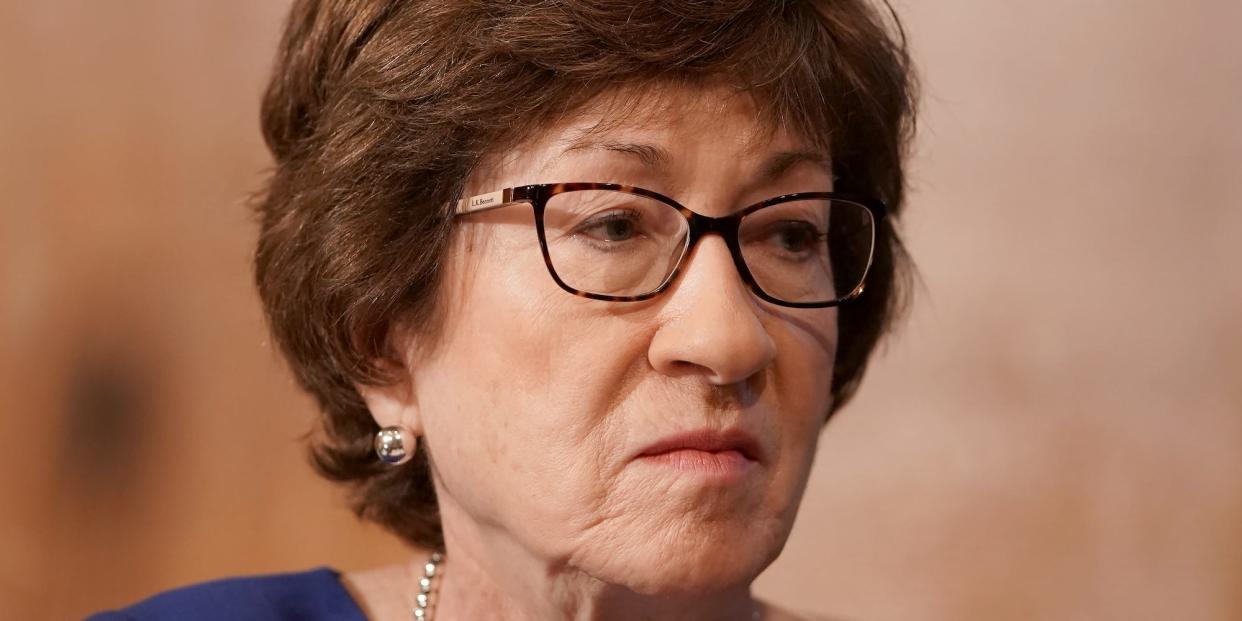Susan Collins says the president elected on November 3 should be the one to pick the next Supreme Court justice

Greg Nash/Pool/AFP via Getty Images
Sen. Susan Collins of Maine said in a statement Saturday that the president elected on November 3 should be the one to fill the Supreme Court vacancy left by Justice Ruth Bader Ginsburg's death.
Collins did not outright refuse to vote on a nominee ahead of the election, but said it would be more fair and consistent for the Senate to wait.
Republican leadership already announced Friday they would immediately move to vote on whomever President Donald Trump nominates ahead of the election.
Sen. Susan Collins of Maine, one of the most vulnerable Republicans facing re-election in the Senate, said in a statement on Saturday that she didn't believe the Senate should vote on a Supreme Court nominee before the November 3 presidential election.
But Collins' statement stopped short of a refusal to vote on a nominee before the election, merely saying she believed it would be most fair to wait.
"In order for the American people to have faith in their elected officials, we must act fairly and consistently — no matter which political party is in power," Collins' statement said.
She added that she would have "no objection" to beginning the process of reviewing President Donald Trump's nominee's credentials, but that the vote should wait.
"Given the proximity of the presidential election, however, I do not believe that the Senate should vote on the nominee prior to the election," she continued. "In fairness to the American people, who will either be re-electing the President or selecting a new one, the decision on a lifetime appointment to the Supreme Court should be made by the President who is elected on November 3rd."
Senate Republicans announced Friday night they would move immediately to confirm a new Supreme Court justice to replace Justice Ruth Bader Ginsburg, who died earlier that day.
Democrats responded with outrage, noting that Republicans refused in the spring of 2016 to vote on then-President Barack Obama's Supreme Court nominee.
Republicans had argued at the time that the Senate shouldn't vote on a new Supreme Court justice during an election year, and that the next president should be the one to fill the vacancy.
Read more:
High profile issues are now at stake on the Supreme Court in the wake of Ginsburg's death
Chuck Schumer: If GOP tries to fill Ginsburg's seat, 'nothing is off the table next year'
Read the original article on Business Insider

